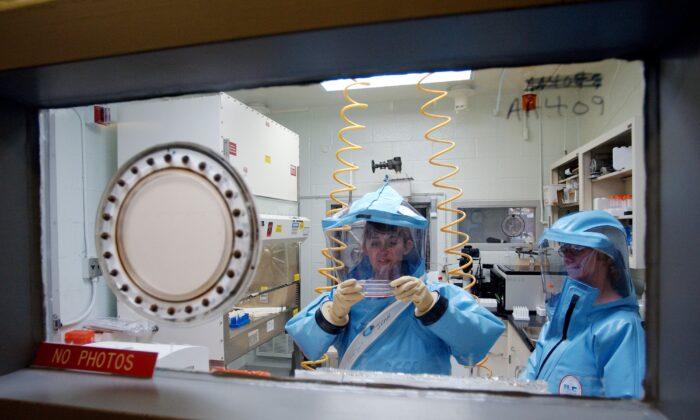The Department of Health and Human Services (HHS) said on April 25 it is not creating a registry for autism, after some advocates raised concerns about what the National Institutes of Health (NIH) director had described as a new autism registry.
“We are not creating an autism registry,” an HHS official told The Epoch Times in an email.
Some autism advocates said they were worried about creating a registry for autism, because they said it could lead to people’s private health information becoming public.
Bhattacharya said that the data platform would draw data from other federal agencies, including the Department of Veterans Affairs, in addition to “real-world sources” such as pharmacies. He said that researchers would be able to work on the platform but not download the data.
“And there are state-of-the-art protections to make sure that, although linkages across the datasets will be permitted inside the platform, these linkages do not in any way threaten or the confidentiality of patients,” he said.
The HHS official said that the description of a new registry was actually referring to “link[ing] existing datasets to support research into causes of autism and insights into improved treatment strategies.”
An NIH spokesperson told The Epoch Times in an email: “The NIH-led initiative includes the development of a secure data repository that will enable researchers to analyze large-scale, de-identified data to better understand the causes of conditions like autism and chronic diseases. This is a proven research approach—similar to how the SEER database has advanced our understanding of cancer. These efforts are not about tracking individuals. All NIH-managed databases follow the highest standards of security and privacy, with the protection of personal health information as a top priority.”
The group said it supports using federal datasets for research if privacy is protected.
“On the other hand, if individuals are identifiable based on the provided information, then serious concerns about privacy are very much warranted,” it added.
“PII should not be shared with researchers without rigorous consent procedures and additional privacy protections. Without more information about how this database will work, which NIH has yet to provide to our community, we will continue to have serious concerns about privacy for autistic people who are included in this database.”






